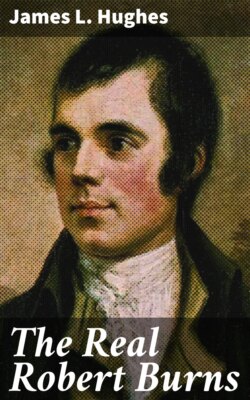Читать книгу The Real Robert Burns - James L. Hughes - Страница 3
На сайте Литреса книга снята с продажи.
FOREWORD.
ОглавлениеTable of Contents
The writer of the following pages learned years ago to reverence the memories of Burns and Dickens. Frequently hearing one or the other attacked from platform or pulpit, and believing both to be great interpreters of the highest things taught by Christ, as the basis of the development of humanity towards the Divine, he resolved that some day he would try to help the world to understand correctly the work of these two great men. His book, Dickens as an Educator, has helped to give a new conception of Dickens, as an educational pioneer and as a philosopher. The purpose of this book is to show that Burns was well educated, and that both in his poems and in his letters he was an unsurpassed exponent of the highest human ideals yet expressed of religion—democracy based on the value of the individual soul, brotherhood, love, and the philosophy of human life.
The writer believes that gossiping in regard to the weakness of the living is indecent and degrading, but that it is pardonable as compared with the debasing practice of gossiping about the weaknesses of the dead. Those who can wallow in the muck of degraded biographers are only a degree less wicked than the biographers themselves, who sin against the dead, and sin against the living by providing debasing matter for them to read.
The evidence to prove the positions claimed to be true in this book is mainly taken from the poems and letters of Burns himself. Some may doubt the sincerity of Burns. Carlyle had no doubt about his sincerity or his honesty. He says of the popularity of Burns: ‘The grounds of so singular and wide a popularity, which extends, in a literal sense, from the palace to the hut, and over all regions where the English tongue is spoken, are well worth inquiring into. After every just deduction, it seems to imply some rare excellence in these works. What is that excellence? To answer this question will not lead us far. The excellence of Burns is, indeed, among the rarest, whether in poetry or in prose, but, at the same time, it is plain and easily recognised—his sincerity, his indisputable air of truth.’
Speaking of the moral character of Burns, Carlyle said: ‘We are far from regarding him as guilty before the world, as guiltier than the average; nay, from doubting that he is less guilty than one of ten thousand. … What he did under such circumstances, and what he forbore to do, alike fill us with astonishment at the natural strength and worth of his character.’
Shakespeare says in Hamlet: ‘Ay, sir, to be honest, as this world goes, is to be one man picked out of ten thousand.’ Carlyle chose Burns as one of ten thousand.
These quotations should help two classes of men: the ‘unco guid,’ who believe evil stories, most of which had no real foundation; and those professed lovers of Burns who love him for his weaknesses. The real Robert Burns was not weak enough to suit either of these two classes. ‘Less guilty than one in ten thousand’ is a high standard.
To do something to help all men and women to a juster understanding of the real Robert Burns is the aim of the writer. Let us learn, and ever remember, that he was a reverent writer about religion, a clear interpreter of Christ’s teaching of democracy and brotherhood, a profound philosopher, and the author of the purest love-songs ever written.
THE REAL ROBERT BURNS.
